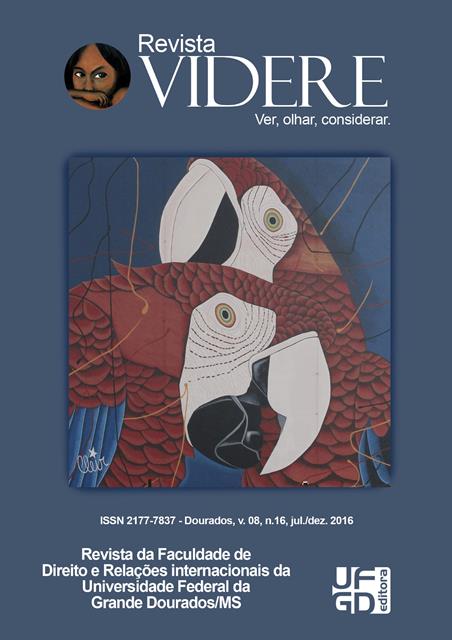MATERNITY versus “MATERNAGEM”: reflections on legal right of woman to send children for adoption
Keywords:
child care, maternity, Abandonment.Abstract
It is undeniable that the industrial society brought with values that release the woman what we consider and prefer to call “biological destiny”. This circumstance helped other speeches based on all the rights assurance and any citizen ends, in turn, generating an infi nite number of understandings that guided by the sexual freedom of women and the feminist discourse to which all are subject in modern times, promote a new conception of what is recognized by family. This modern family, therefore, can no longer be based on values such as marriage because it considers individual goods as aff ection and love. Now, recognizing the family as the result of a sentimental value, it is necessary to rethink the law that every woman has to choose whether or not the mothering and not be accused of neglect. The fact is that the theme justifi es a broad discussion of socio-political nature. However, the work is worthy, aft er brief remarks about the family, to discuss the legal refl ections on the right to deliver the child to adoption.Downloads
Downloads
Published
How to Cite
Issue
Section
License
Authors must accept the publication rules when submitting the journal, as well as agree to the following terms:
(a) The Editorial Board reserves the right to make changes to the Portuguese language in the originals to maintain the cultured standard of the language, while respecting the style of the authors.
(b) Authors retain the copyright and grant the journal the right to first publication, with the work simultaneously licensed under the Attribution-NonCommercial-ShareAlike 3.0 Brazil (CC BY-NC-SA 3.0 BR) that allows: Share - copy and redistribute the material in any medium or format and Adapt - remix, transform, and create from the material. CC BY-NC-SA 3.0 BR considers the following terms:
- Attribution - You must give the appropriate credit, provide a link to the license and indicate whether changes have been made. You must do so under any reasonable circumstances, but in no way that would suggest that the licensor supports you or your use.
- NonCommercial - You may not use the material for commercial purposes.
- Sharing - If you remix, transform, or create from material, you must distribute your contributions under the same license as the original.
- No additional restrictions - You may not apply legal terms or technological measures that legally restrict others from doing anything that the license permits.
(c) After publication, authors are allowed and encouraged to publish and distribute their work online - in institutional repositories, personal page, social network or other scientific dissemination sites, as long as the publication is not for commercial purposes.



















